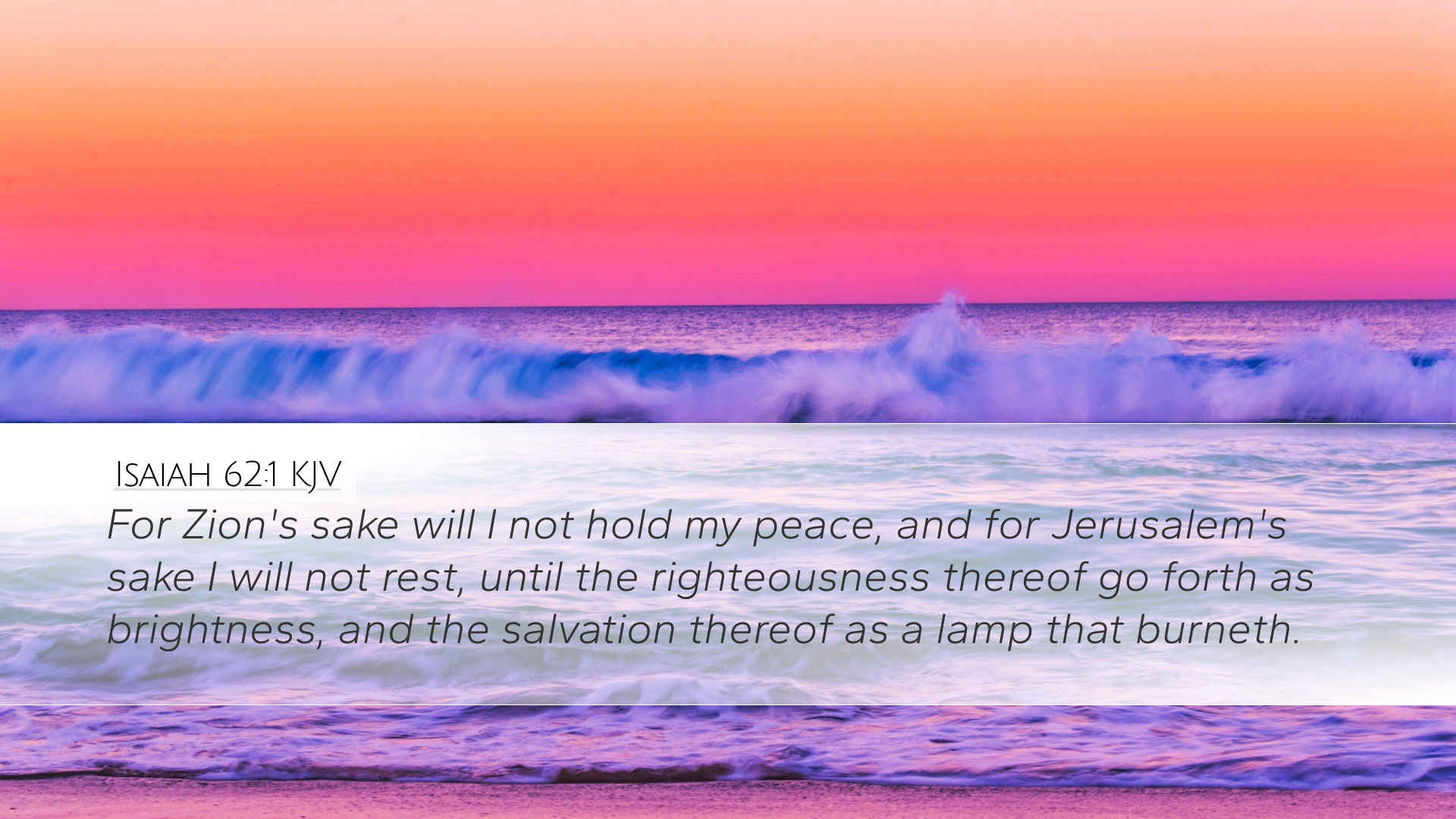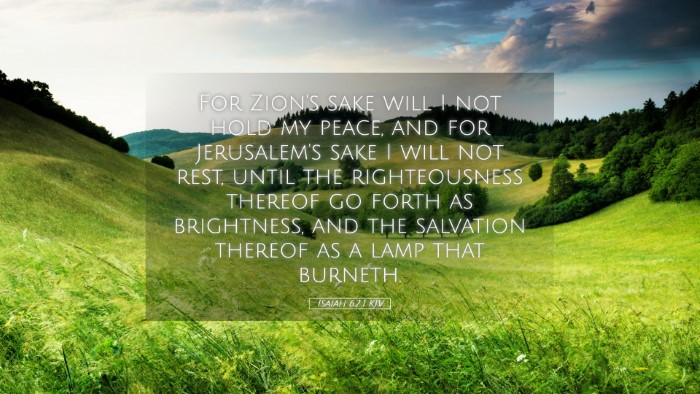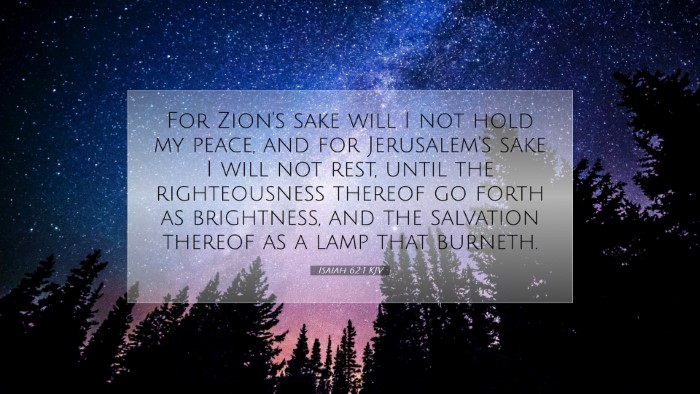Commentary on Isaiah 62:1
Verse: "For Zion's sake will I not hold my peace, and for Jerusalem's sake I will not rest, until the righteousness thereof go forth as brightness, and the salvation thereof as a lamp that burneth."
This verse is part of a thrilling declaration regarding God's passionate commitment to Zion (Jerusalem) and His determination to bring forth righteousness and salvation for His people. It embodies a profound assurance of God's unyielding love and advocacy for His chosen city.
Interpretation of the Verse
Matthew Henry's Commentary: Henry emphasizes that the speaker (God) is deeply concerned for Zion's condition. He will not become silent nor give rest until He sees righteousness in Jerusalem manifest as bright light. This suggests a divine intervention that transforms the state of His people and fulfills His promises.
Albert Barnes' Notes: Barnes observes that the expression “for Zion's sake” indicates a relational aspect; God’s love and commitment are bound to His covenant people. The insistence on not holding peace represents God’s active engagement in the world, signaling His divine purpose to restore His people and the city through His righteousness.
Adam Clarke's Commentary: Clarke provides insights into the term "brightness" which denotes clarity and visibility of God’s righteousness. The metaphor of a lamp signifies guidance and illumination, pointing toward the hope that God instills in His people. This restoration is not only for Israel but carries implications for the entire world.
Theological Implications
- Divine Advocacy: The verse illustrates God's unwavering commitment to justice and righteousness. It showcases a profound aspect of God’s character as an advocate for His people.
- Hope and Anticipation: This promise serves as a source of hope, reminding believers of the future glory and salvation that God intends for His people, resonating with themes of eschatology.
- Universal Salvation: The references to light and burning lamps reflect ideas of epiphany and revelation, suggesting that God's plan encompasses not just Israel but the wider world.
Practical Application
The insights drawn from this verse are applicable in both personal and communal contexts:
- For Pastors: This verse serves as a reminder of the pastoral duty to advocate for justice and righteousness in their communities, reflecting God’s relentless love.
- For Students: The theological depth invites students to explore the character of God in relationship to His people, fostering a deeper understanding of biblical prophecy.
- For Theologians: The content of Isaiah 62:1 encourages a robust dialogue on the nature of divine advocacy and eschatological hope, pushing boundaries of traditional interpretations.
Conclusion
In summary, Isaiah 62:1 encapsulates the essence of God's commitment to His people and serves as both a reassurance and a challenge. As God does not rest until His righteousness shines forth, so too must His people strive towards justice, embodying the light of salvation in a world that yearns for hope and healing. The insights gained from the rich commentaries provide a foundation for understanding and applying the profound truths contained within this verse.


